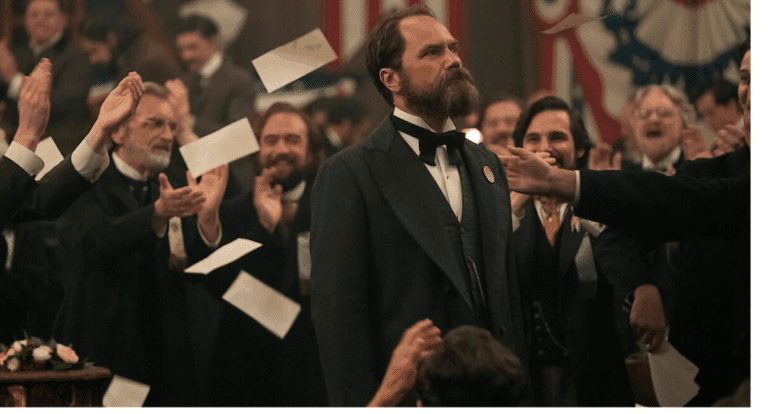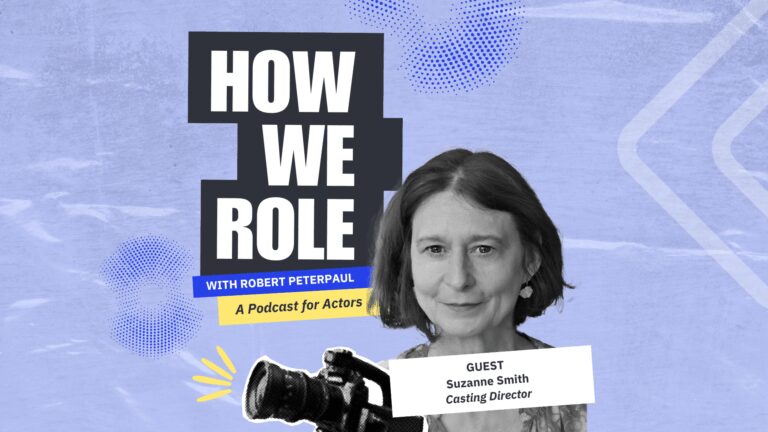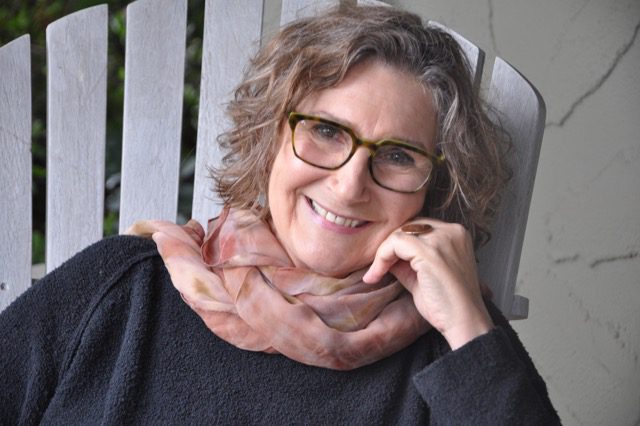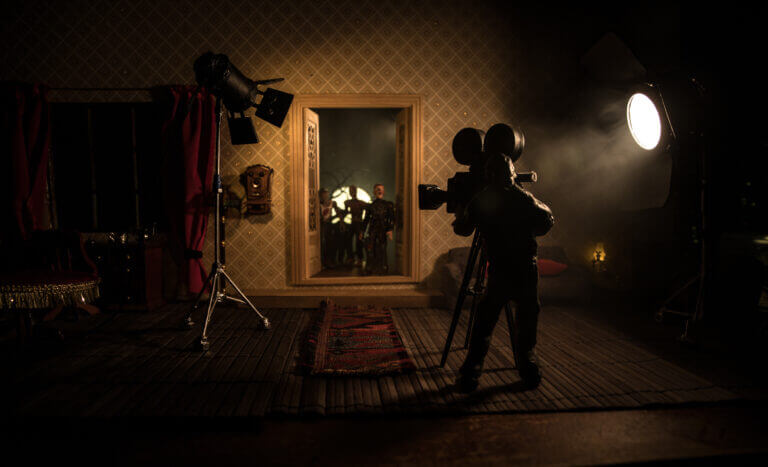If you talk to casting director Ilona Smyth for just a few minutes, you’ll understand how impressive she is. She started her first casting business while still a teenager, moving up from background casting to principals, while also increasing work for local actors in Toronto and her native Ottawa, where she has helped to build the production infrastructure. While she no longer works in background, she still runs Background Work, a company which specializes in educating and employing background actors, mostly in Canada. She also has a strong Instagram following. You can follow her at @Smythcasting.
Most of Smyth’s work these days is with the Hallmark and Lifetime networks, making true crime and feel-good movies for a specific, but very sizable audience. She’s also remarkably prolific, with more than a dozen films in 2024, and roughly that many again in 2025. One of those, Relative Danger, will drop on Lifetime on November 7. She spoke to us from her home office in Ottawa.
Key Insights:
- Ilona Smyth began casting as a teenager and grew her company into a major force across Canada, handling both principal and background work.
- She’s passionate about regional talent, proving that “talent is not geographical” and advocating for more local hires in film and television.
- Smyth balances her prolific Hallmark and Lifetime casting work with mentoring actors on understanding the business side of their careers.
How did you get into casting in the first place?
I used to sing opera back in the day. I started coaching kids and actors in town, and a few Lifetime movies started coming through the Ottawa area, which was at the time pretty regional. I started casting background for them, and then I reached out to 30 casting directors in LA and said I was looking for mentorship. I got to meet with [casting director] Meg Liberman, who gave me some advice that sat with me: “It’s my job to know everybody.”
And have you succeeded at that?
Because I started in a regional market, I really have taken on the mantra of “talent is not geographical.” I love seeing people union and non, because there are diamonds out there. I once cast the guy who bagged my groceries because when I read the script, I said [to myself], “Zach.” So from there, I went to the producers and said, “I think you’re wasting money, bringing so many people in from other places. There’s some great actors here. You also don’t need to hire three casting directors. I’m more than happy to help you book your leads and all your supporting roles.” Then I just went ahead and showed up.
You make it sound so simple.
My company started in background casting when I was 17. And my company still does background casting, not me, but I have a staff of eight, and we have some up north in Sudbury and North Bay. We have some in Toronto and some here, and they all do the background. I myself do all the principal casting.
Wait, back up a second. You started your first company when you were 17? Did the word “precocious” come up a lot?
(Laughs) Never. Later, I ended up dropping out of university with three classes left to open my company. Best decision ever.
When did you start Background Work?
A year and a half ago. Over the years, I’ve watched how background actors have gotten swept aside. They get the shitty craft table, people don’t think they’re necessary to a movie or a TV show, but they totally are. There are some agents in Canada who will charge them $300 a year and take 20% off the minimum wage. This company doesn’t do that. Actors get to manage their own schedule, and it streamlines communication, because previously it was random Facebook groups [that] people would have to join.
But you no longer do background casting, right? You only do principals?
That’s what I do, yes. This has been an issue when getting hired, because people think, “Oh, but you do background.” I have to tell them, “Well, I might have one or two extras castings on my IMDb page, which are impossible to remove once they’re on there, but no, with me, you’re getting full-service casting. You’re getting the same eyes on the script from your lead actors, all the way down to the guy handing out coffee in the background.”
What was it about casting that spoke to you?
I love to read, and I would always sit back and imagine what these characters look like in my head. I get to do that for a living, and it’s the coolest thing ever. My favorite part of the job in itself is watching actors I know, who have been training or working so hard, finally getting even a one-line role. When they finally get that opportunity, it makes me so happy.
I would think that you have a lot of opportunity to do that now to place these actors in the work that you’re doing.
Here’s the thing. As much as I love giving back to people that I’ve seen come of age, and I have been lucky to be in situations where I do get to put them in certain roles when it fits, I also love finding new people. I think, too, what I try to teach actors when I talk to them is that they own their own business. This is your company, so understanding the business side is just as important as taking classes and learning how to dive into a character and break down scenes and do all that stuff.
But understanding tax credits in certain provinces or states, and who the casting directors are, what they’re casting — the real questions you should be asking your agent — which casting directors do you find you communicate with the most, what do you ask for a time in negotiations, all these things should be asked.
A lot of your work is for Hallmark and Lifetime movies. There’s a stigma to those in the industry, but they have an enormous following. You said you got involved with them as a kid, but you have clearly stayed with them in the years since.
When I started, it was always Lifetime stuff that I was doing, and then I just saw an opportunity. I helped build the infrastructure in Ottawa. Back then it was a very regional market, a lot of independent horror movies, and then Hallmark came around. They started taking on that same model of the Lifetime movies. There are a few service producers that came through here and it just made sense. I’ve developed really good relationships with those producers, even the ones coming from out of town. So when Hallmark and Lifetime came through, it’s a lot of service. A lot of quick decisions. I really quite enjoy them. I think there is an art to casting them. I mean, do you know why they do so well?
They’re enormously reassuring. My mother-in-law watches them religiously. She has them on in the background 24 hours a day.
It’s like in the Great Depression when people would all watch the Shirley Temple movies. If you’re thinking about the state of the world, or whatever’s getting you down, I can put this on, and it can end well. I teach actors, you’re the juxtaposition to the lead, who’s going through a major life crisis. “Am I going to leave the partnership offer in the big city while I’m in my small town helping my aunt save her bakery and marry the tree farmer?”
(Laughs) But all the supporting characters are the light and love in between that. There’s such an art, even for the actors, on how they approach, say, a Lifetime movie versus a Hallmark movie versus an indie versus a TV show. They’re all enormously different in the way you approach those characters.
You very clearly love this stuff.
I really do. I love that every day is different. I love that I get to read so many fascinating stories. And I love that I get to meet so many fascinating people. I’ve done well over 200 movies, and every single movie I’ve learned something new. And I love that part of it. It’s very fun.
You talked about the things that you teach actors. If someone were going to come in to audition for you, what piece of advice or wisdom would you offer them?
If I’m asking you to come in, it’s because I think you can do it, point blank. You as an actor are getting paid to create that character, so do that. Don’t make the safe choice. Send us that, for sure, but look for the human element in the scene and how is this relatable to anyone who’s watching it. We watch TV shows and movies to relate to the characters we’re seeing. So look at that. What’s happened before? What’s happened after? Who am I talking to? What do I think about the person I’m talking to? What do they think about me? How does that affect it?
Remember to breathe. To me, breath is our first language. You could be anywhere and you can tell somebody’s mood based on their breathing. On top of that, listen. A redirect doesn’t mean what you did’s wrong. We want you to do well. If you get cast and you’re perfect for the role, I get to go home and hang out with my kids. My day’s done. (Laughs) Also, it’s so important to understand the business. Otherwise, you’re just paying to play. You are an incredibly necessary cog in the wheel, and that character lives through you, but also listen and pay attention and and have a little bit of fun.
Key Takeaways:
- Building a sustainable acting career means learning both craft and commerce — from tax credits to casting relationships.
- Background actors are essential contributors to storytelling and deserve fair treatment and professional respect.
- Success in casting — and acting — comes from curiosity, courage, and a genuine love for the people and stories that shape the work.
You may also like:














